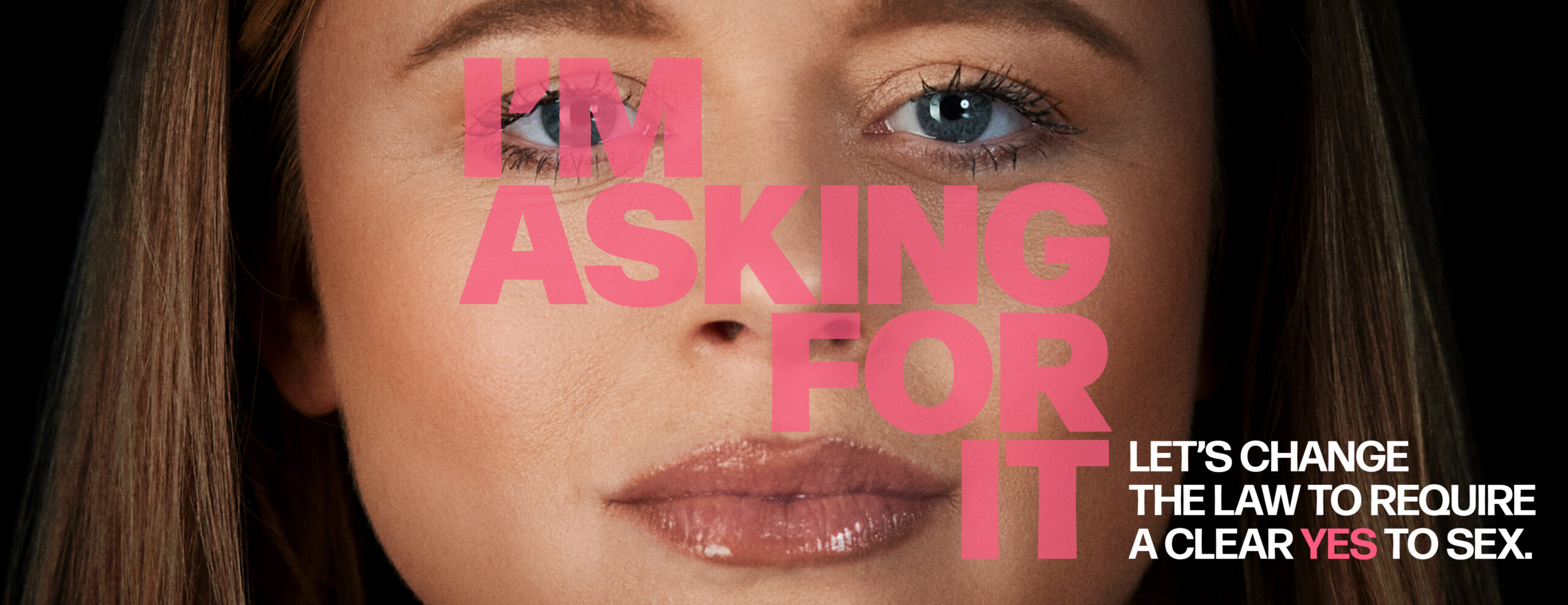
THE PROBLEM
More than a fifth of Brits think NO can mean YES when it comes to sex
Despite UK law saying that both people need to give their consent to sex, the public isn’t always clear about what consent means.
This murkiness shows up in court too, where the notion of implied consent – making an assumption based on someone’s behaviour – is accepted. Victims often have to battle bias and prejudice as they try to prove they did not consent. This can be particularly difficult when common reactions to sexual violence include freezing or when they do not verbalise the word ‘no’.
WHAT WILL HELP
If the UK adopts the Affirmative Consent standard then anything less than a clear, uncoerced, and informed confirmation of consent like “Yes” cannot qualify as consent in the eyes of the law. Affirmative Consent has recently been enshrined in law in other nations, and we believe it should now be adopted in the UK. Doing so will bring about a cultural and legal shift in understanding consent as an active agreement.
While changing laws will not eradicate rape and sexual violence, it is a significant starting point. We also believe that adopting Affirmative Consent will help to create a more widespread culture of mutual respect and understanding around sexual interactions.
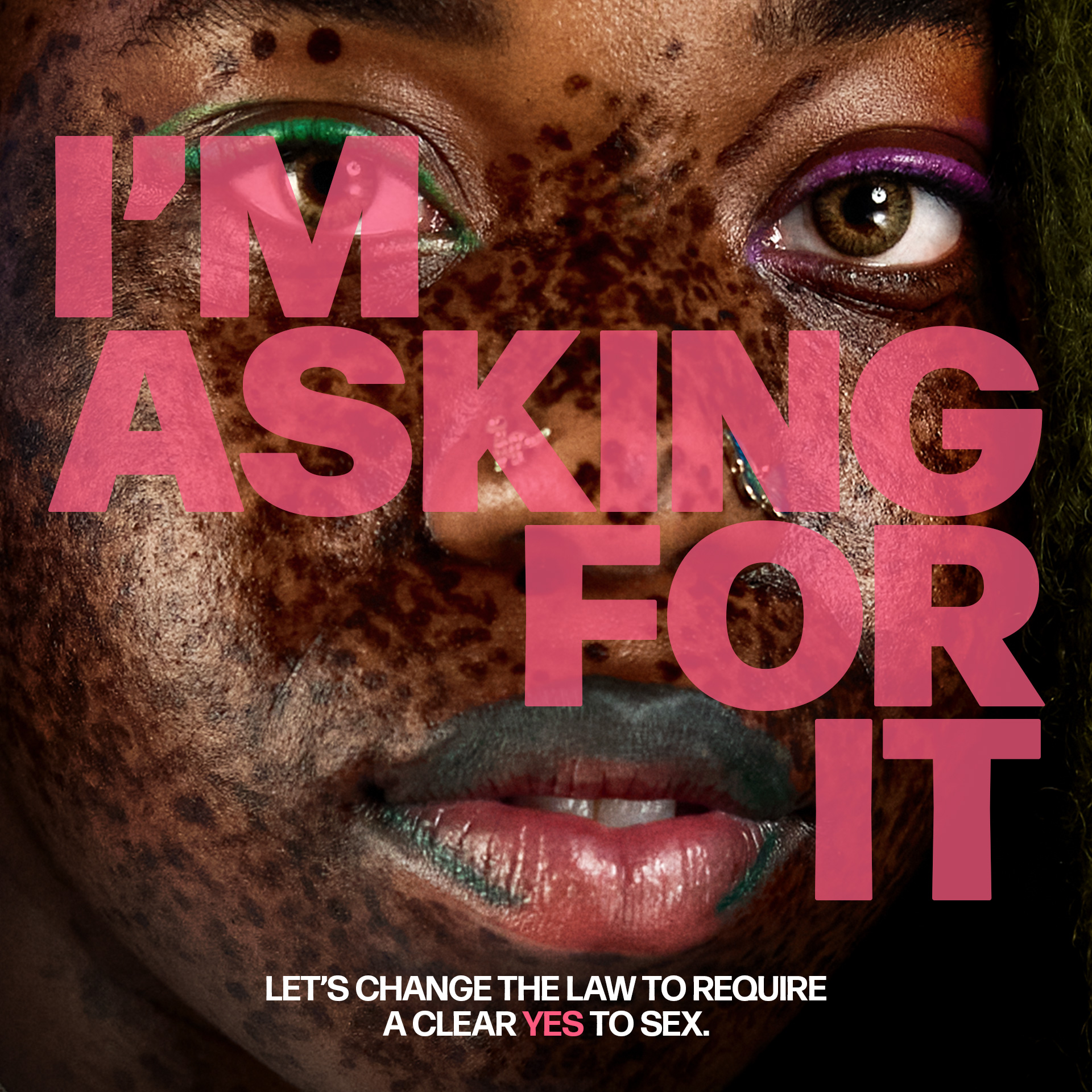
WHAT YOU CAN DO
WE’RE ASKING FOR IT: THE NATION SPEAKS*
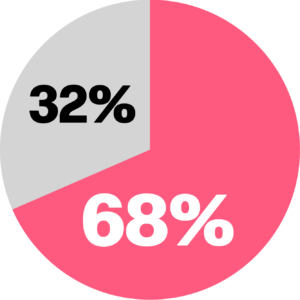
68% of adults in the UK believe consent should be given before every sexual activity, even if it’s been given before.
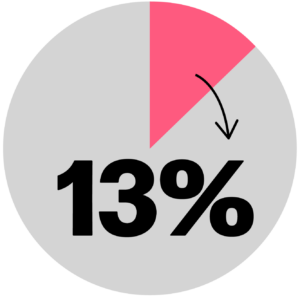
Just 13% of Brits feel asking for consent before or during sex is awkward.
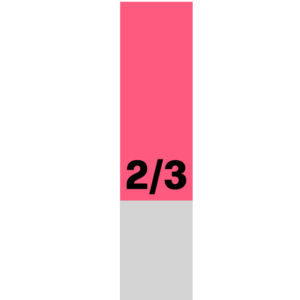
Two-thirds of adult Britons think that changing the law to Affirmative Consent will have a positive impact on the UK’s appalling rape conviction rate.
*2000 people were questioned (999 women, 993 men and six non-binary respondents) between 21st – 27th December 2023. Research carried out by Perspectus Global.
Your voice and your actions carry great power. Please consider showing your support by getting involved:
SIGN
Right to Equality’s petition, advocating for the implementation of affirmative consent laws in the UK. At 10,000 signatures our petition will receive a response from the government. At 100,000 signatures, the petition will be considered for debate in Parliament.
WRITE
to your MP. Find your local MP.
Download the template here.
TALK
to people around you about affirmative consent. Knowledge is power; sharing what affirmative consent is, why it’s important, and empowering people to ask for it will help drive change.
Helpful guidance for teachers (PSHE)
EMILY ATACK – LEADING THE CHARGE

In 2021 Emily joined a campaign demanding legal change that would better protect women from cyberflashing. While cyberflashing became a criminal offence a year later in England and Wales, in January 2023 Emily broke new ground with her acclaimed documentary ‘Asking for It’, exploring the loopholes that often make it difficult to convict, and asking why.
In the course of making the programme, Emily says she realised that it’s the lack of consent that gives so many men a thrill when they hit send on obscene messages to women. “I didn’t ask for them, I don’t want them – but that doesn’t matter. In fact, that’s the point. It got me thinking: Consent, or the lack of it is at the heart of so much sexual harassment and violence that women and girls experience, yet the current law still fails to protect those who don’t say the word ‘no’ outright. It’s time to make things simple – only a Yes should mean Yes. That simple messaging would certainly help inspire more open and clearer communications.”
WHO IS BEHIND THIS CAMPAIGN?

Right to Equality is a forward-thinking non-profit organisation committed to championing gender equality under the law. Founded by Dr Charlotte Proudman, a Women’s Rights Advocate and Senior Research Associate at the University of Cambridge, Right to Equality works on impactful campaigns aimed at changing legislation. Dr Proudman was awarded ‘Advocate of the Year,’ at the Women in Law Awards 2023 and is a finalist again in 2024 alongside Right to Equality.

F&B London is part of one of the world’s most awarded advertising agencies, Forsman & Bodenfors. Widely recognised for its passion for communications that drive real change for brands, the team also regularly deploy their creative smarts to tackle some of society’s most pressing issues.
FAQs
WHAT IS AFFIRMATIVE CONSENT?
Affirmative consent must be an active, voluntary, informed, and mutual decision to engage in sexual activity. Consent can be given through clear words or actions through which a person has indicated permission to engage in sexual activity. Affirmative Consent should be clear and enthusiastic, rather than simply the absence of a “no”.
Affirmative consent can be withdrawn at any time, and cannot be obtained by expressed or implied force, threats, or coercion.
WHAT ARE SOME EXAMPLES OF AFFIRMATIVE CONSENT?
Affirmative Consent requires the presence of a “yes” rather than the absence of a “no”. This can be expressed verbally, which is the safest and clearest form of consent. Examples of giving verbal consent include “Yes” or other affirmative statements such as “I’m open to trying”.
If you are not sure you are getting a clear and enthusiastic yes from your partner, it is your responsibility to ask. Consent cannot be inferred from silence or lack of resistance.
IS AFFIRMATIVE CONSENT CURRENTLY RECOGNISED WITHIN ENGLISH AND WELSH LAW?
It is not. The Law in England and Wales is currently consent-based but it is not ‘affirmative consent’ based.
While it has recently been enshrined in law in other nations, we believe Affirmative Consent law should now be adopted in the United Kingdom. Doing so will bring about a cultural and legal shift in understanding consent as an active agreement.
WHY DOES A DISTINCTION BETWEEN SAYING NO AND SAYING YES MATTER?
The current approach to consent means that the burden of proof is often on the victim, who must demonstrate that they did not give consent. If it cannot be proven that a woman said No – perhaps because, as is common in sexual assault, she froze – then it is often left to a jury to decide whether a defendant could reasonably have believed that she consented. This is a challenge because created as they are to represent a cross-section of society, juries also reflect people’s beliefs and biases, including those related to how society thinks women should behave. In fact, the UK Crown Prosecution Service has stated that proving the absence of consent (i.e. that someone said ‘No’) is usually the most difficult part of a rape prosecution, and it is the most common reason for a rape case to fail.
By contrast, under the Affirmative Consent standard anything less than “Yes” does not qualify as consent in the eyes of the law. An Affirmative Consent approach thus helps avoid some of the subjectivities and complexities we see in court about a defendant’s beliefs and a victim’s behaviour.
WHAT COULD THE BENEFITS OF ADOPTING AFFIRMATIVE CONSENT LAW BE?
By flipping the system from an excessive focus on the behaviour of victims to instead looking at whether a defendant knew someone was actively agreeing to sex, and how they knew that, Affirmative Consent reforms will change the law to better deliver justice to victims and survivors of sexual assault.
Currently the law just isn’t serving women – less than 2% of recorded rape offences result in someone being charged, let alone convicted and as the UK Crown Prosecution Service has said, challenges with proving the absence of consent (i.e. that someone said ‘No’) is the most common reason for a rape case to fail.
Beyond the courts, we also believe that adopting Affirmative Consent will help to create a more widespread culture of mutual respect and understanding around sexual interactions.
WHAT ARE THE COUNTRIES THAT HAVE ALREADY IMPLEMENTED AFFIRMATIVE CONSENT IN LAW?
Affirmative Consent law applies in Canada, as well as several states in the US and Australia. In Europe, Sweden, Portugal, Iceland, Spain and Denmark are considered most aligned to the affirmative consent model.
HOW DOES THIS CAMPAIGN AIM TO CHANGE THE LAW?
We want to raise awareness of the need for legal change. Many of us have heard about England’s appalling conviction rates for rape and sexual assault (on average less than 2% of reported rape cases result in someone being charged, let alone convicted). But do we understand that our current legal definitions of consent are contributing to those staggering figures?
The public-facing ‘I’m Asking for It’ campaign aims to get the issue of Affirmative Consent on people’s radars – What is she asking for? Why does it matter? We’re inviting people who want to see change to sign a petition, helping to create a groundswell of public support for the initiative.
ISN’T ‘I’M ASKING FOR IT’ QUITE AN INFLAMMATORY NAME FOR A CAMPAIGN LIKE THIS?
I’m Asking for It is intentionally provocative. We want to stop people in their tracks, get them thinking about how women are often treated by society and the courts – as if they were ‘asking for it’ – and then flip the narrative: Actually, she is asking for legal change.
WHAT IS EMILY ATACK’S CONNECTION TO THIS CAMPAIGN?
In 2021 Emily joined a campaign demanding legal change that would better protect women from cyberflashing.
While cyberflashing became a criminal offence a year later in England and Wales, in January 2023 Emily broke new ground with her acclaimed documentary ‘Asking for It’, exploring the loopholes that often make it difficult to convict, and asking why she still blames herself for much of the content she receives. “I realised that it’s the lack of consent that gives so many men a thrill when they hit send on those dick pics or obscene messages. I didn’t ask for them, I don’t want them – but that doesn’t matter. In fact, that’s the point. Consent, or the lack of it, is at the heart of so much sexual harassment and violence that women and girls experience, yet the current law still struggles to define consent. It’s time to make things simple – only a Yes should mean Yes.”
WHAT CAN I DO TO SHOW MY SUPPORT FOR THIS CAMPAIGN?
Your voice and your actions carry great power. Please consider signing the petition – if we can get to 10,000 signatures our petition will receive a response from the government. At 100,000 signatures, the petition will be considered for debate in Parliament. (Depending on public pressure, it’s also possible that a petition will be considered for debate before it reaches 100,000 signatures – let’s create that pressure.)
You can also:
- Write to your MP, asking them to support changing the law;
- Buy the T-shirt, take a selfie, and share with your online network using the hashtag #ImAskingForIt, linking to this campaign page for more information.
WHAT ARE THE MAIN CRITICISMS OF AFFIRMATIVE CONSENT, AND ARE THEY VALID?
Criticism tends to fall into two buckets:
-
It has been said that the requirement to secure consent doesn’t match how people have sex in the real world. Our response is that it’s probably time the ‘real world’ changed a bit, especially if it can lead to more mutually respectful and thus enjoyable sex. (Indeed, our recent national poll revealed that just 13% of Brits feel asking for consent before or during sex is awkward.)
-
Other critics argue that the focus should be on comprehensive sex education and fostering a culture of open communication about boundaries and consent rather than relying on a legalistic framework like Affirmative Consent. We agree – changing the law alone will not in itself change behaviours, but we believe it is a significant and important starting point.
WHO IS BEHIND THIS CAMPAIGN?
‘I’m Asking for It’ is a campaign from creative agency CPB London in support of the non-profit Right to Equality.
Right to Equality is a forward-thinking non-profit organisation committed to creating tangible change through legal reform in the UK. The non-profit’s mission revolves around championing gender equality under the law and advocating for the rights of women and girls.
CPB London is part of one of the world’s most awarded advertising agencies, Crispin Porter Bogusky. Widely recognised for its passion for communications that drive real change for brands, the team also regularly deploy their creative smarts to tackle some of society’s most pressing issues.
HELP
Information and support for anyone affected by rape, sexual assault, sexual harassment or any other form of sexual violence is available from Rape Crisis. The organisation provides a free phone and online chat service for those aged 16+ in England and Wales.









